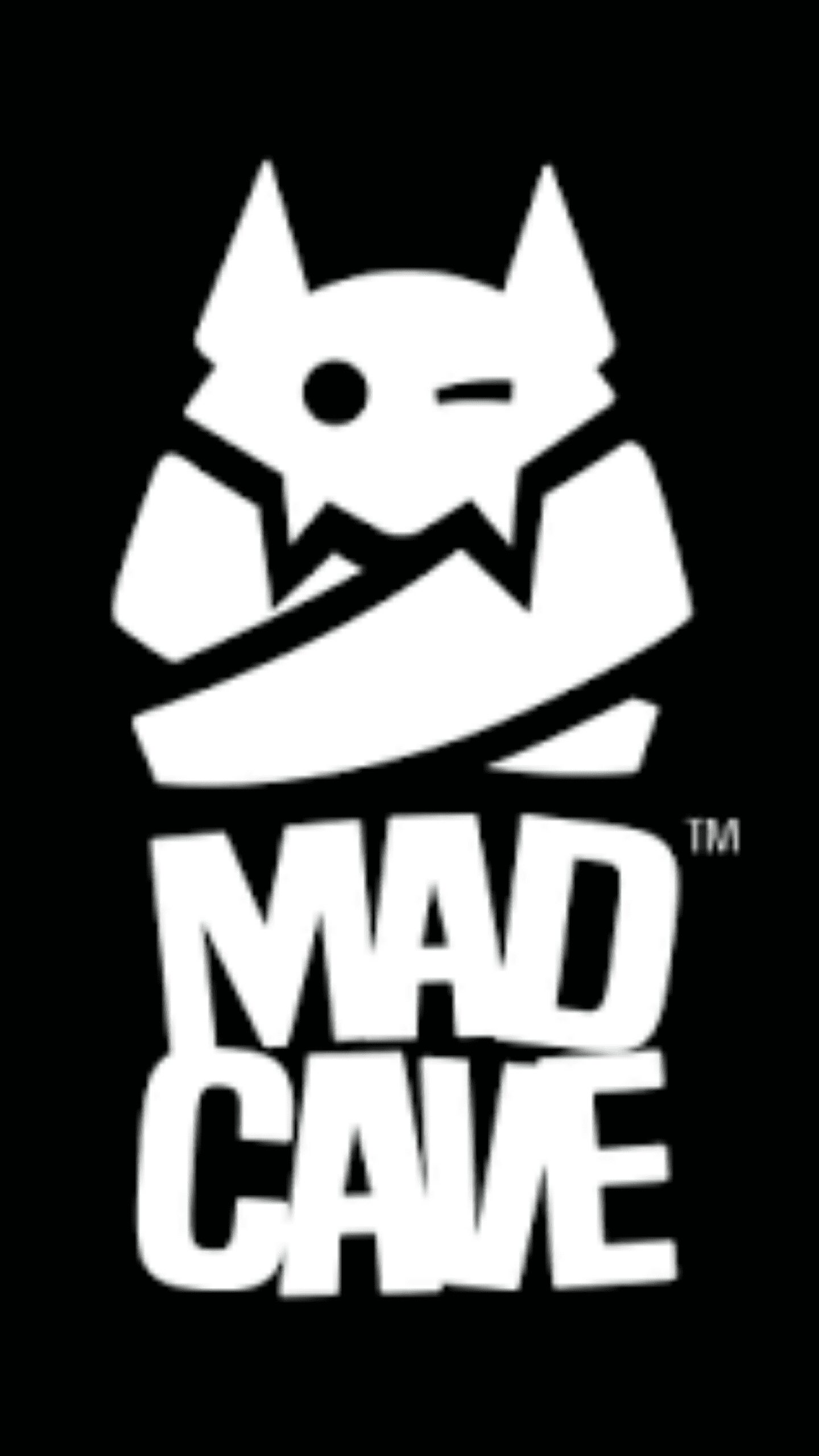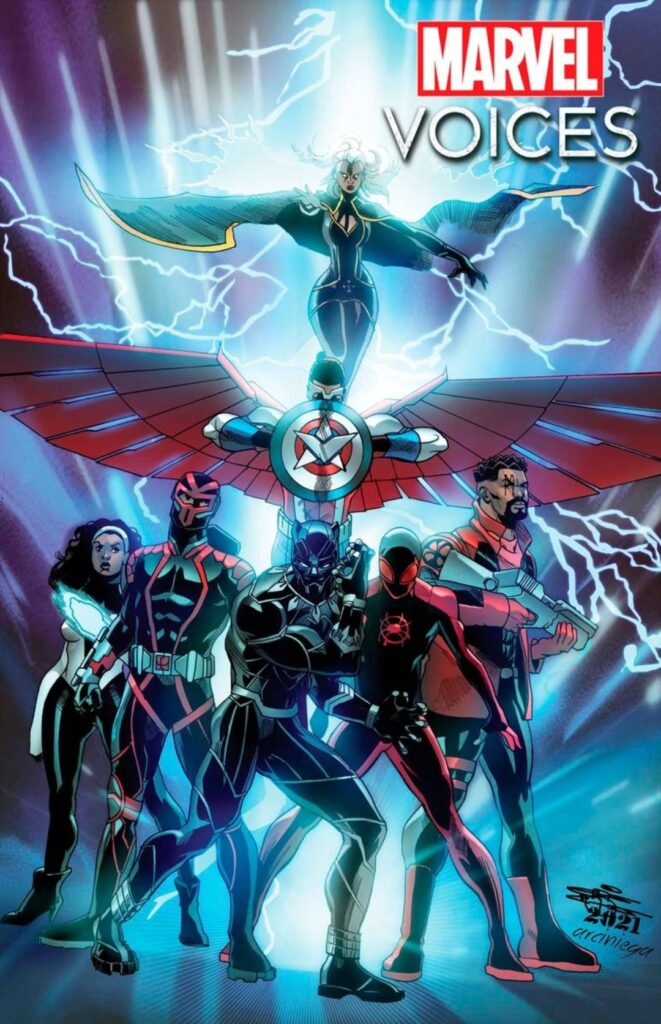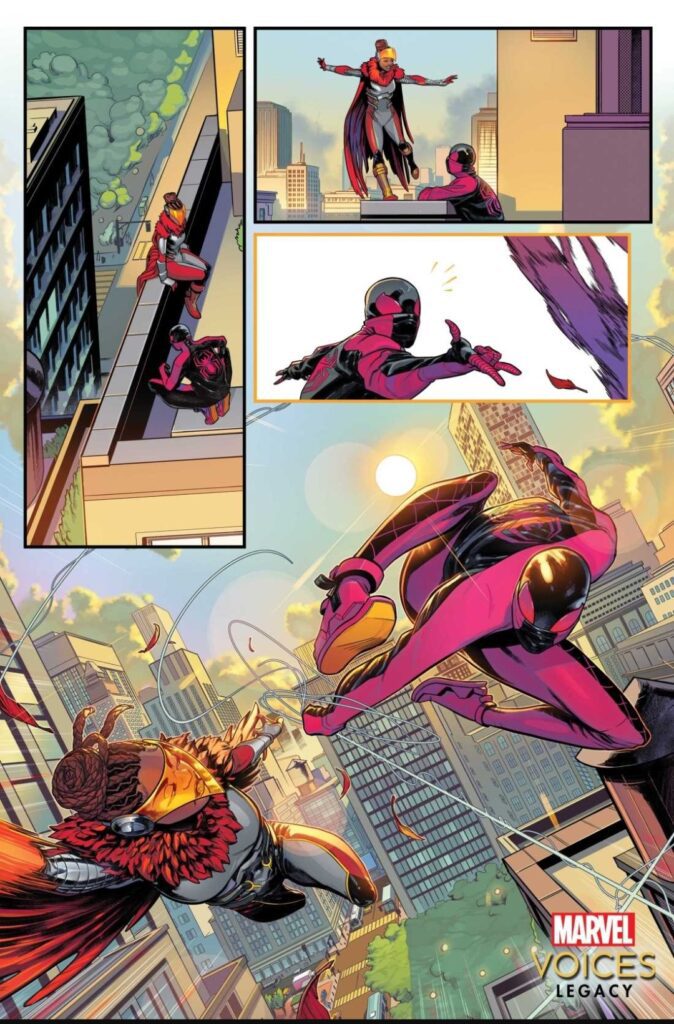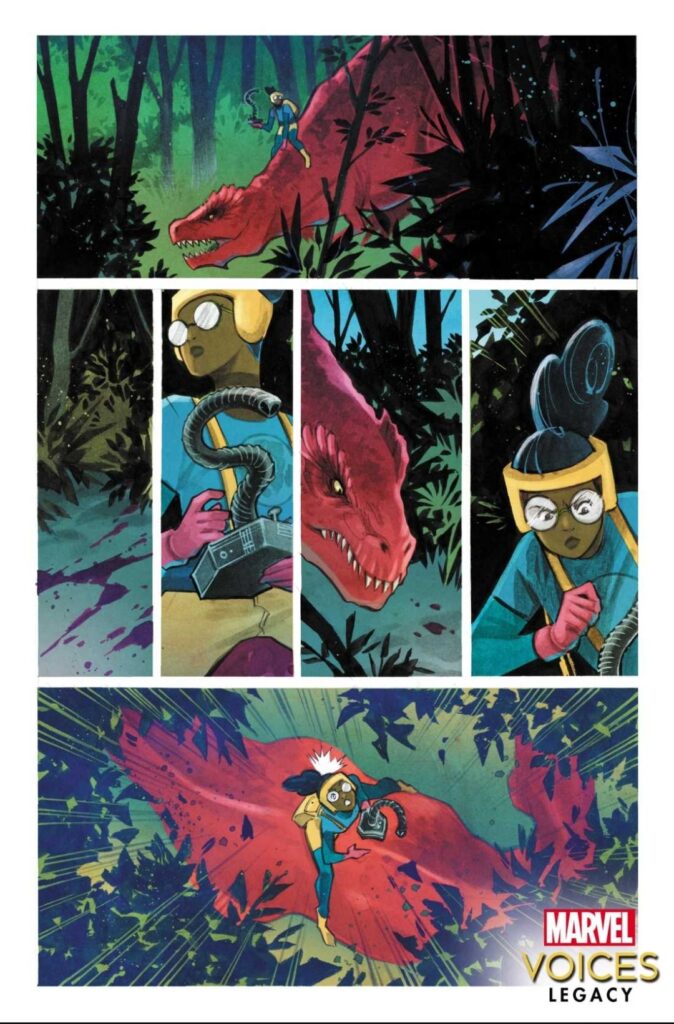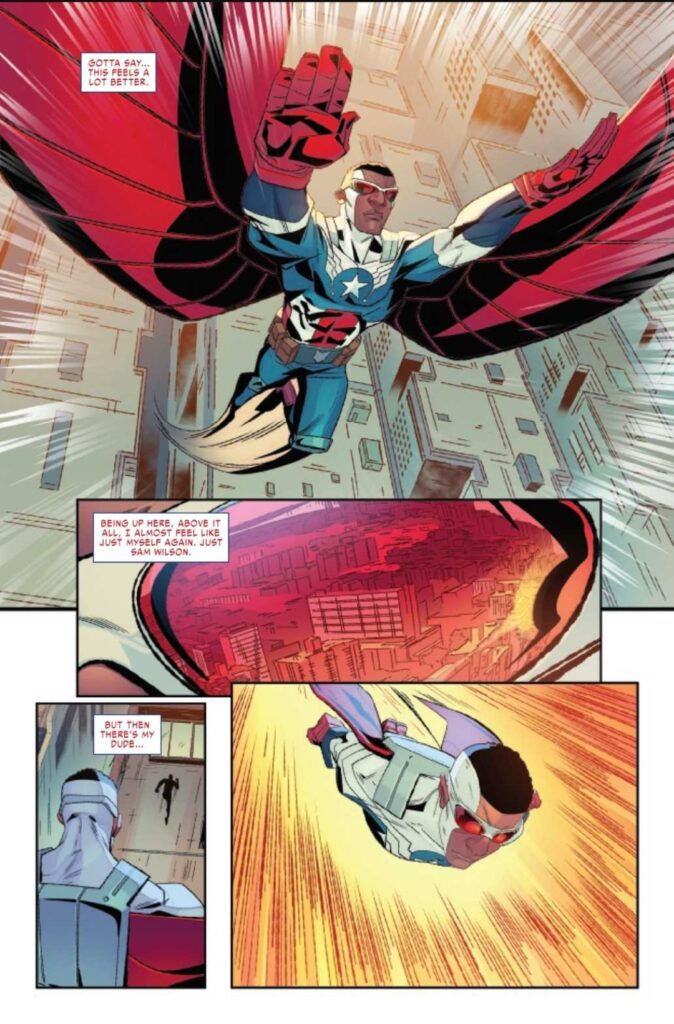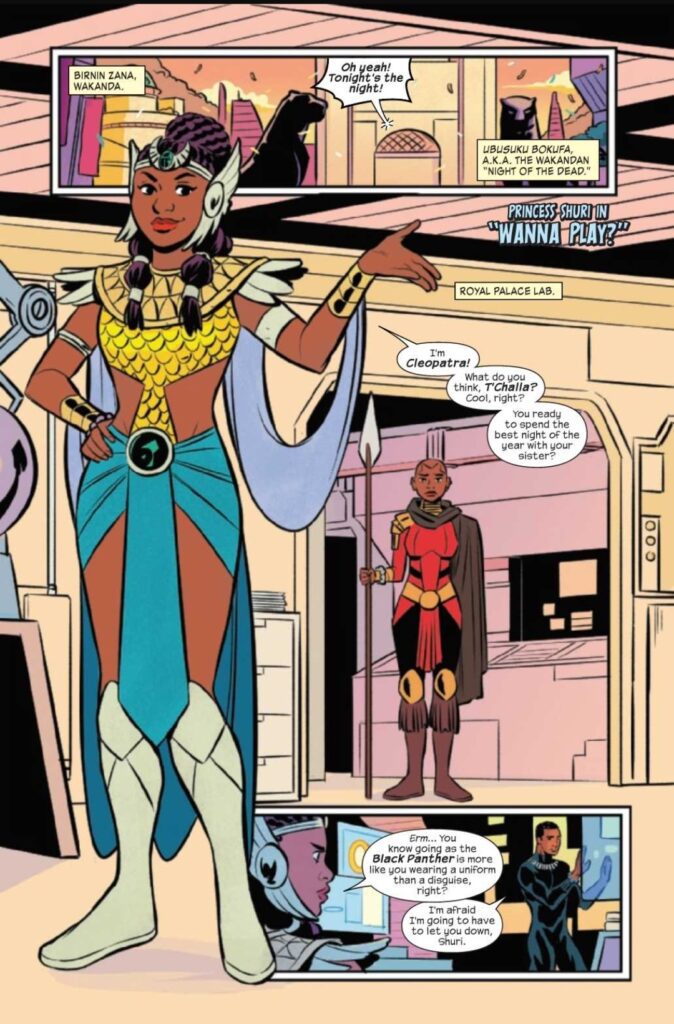The “apostrophe ‘s’ ” has a power that can’t be understated. Most times the apostrophe is used it’s to make words shorter. But the “apostrophe ‘s’ ” deals with matters of ownership. The ability to state that something is “one’s” own. Marvel Comics clearly understands this as the publisher has been producing a series that proves they know “their” audience. Though Walt’s company may have the papers, Marvel Voices Legacy # 1 (and the rest of the Voices anthologies) proves who The House of Ideas really belongs to.
Marvel Voices Legacy # 1
Introduction: Karama Horne
Writer: Cody Ziglar; J. Holtham; Natacha Bustos; Victor LaValle; Maria Frohlich;
Artist: Jahnoy Lindsay; Julian Shaw; Larry Houston; Natacha Bustos; Eder Messias; Karen S. Darboe (of Magnus Arts); Maria Frohlich; Stephanie Paitreau; Sean Damien Hill; Oren Junior; Paris Alleyne
Colorist: Jahnoy Lindsay; Paris Alleyne; Dijjo Lima; Natacha Bustos; Ian Herring; Stephanie Paitrea;
Letter: VC’s Ariana Maher
Marvel Voices Legacy # 1 opens with single page address from the “Head of State”. While his former wife is on the cover, and can probably claim as much regality as the current Regent of Mars, T’Challa is certainly a fine choice as the lead/figurehead. The message his portion presents is on point. Though he is the “panther” I can’t help but feel his message echoes one from a certain Disney fatherly feline, “I just hear that name, and I shudder”. Given that both characters come from the same continent you simply can’t ignore this as key cultural component. The richly illustrated image reinforces the balance of respectively reflecting upon what came before, while responsibly reaching and representing for tomorrow.
The Road we Trod
Marvel Voices Legacy # 1, along with the other Voices issues, presents a potential problem for the casual comic reader. While on the surface they each contain stories, they come with a twist to the traditional super hero type you may be accustomed to. The time tested strategy was to create a character and include things such as appearance and traits to endure fans to them. So if you think “you won’t cop out when there’s danger about” then Luke Cage is probably who you gravitated to. The only problem with that is well humans ain’t ice cream so there are more than 31 flavors. If you follow that formula you end up with overpopulation and there seems to be only one solution for that. (Ask the mutants, they’ve been through it 2 times…headed for 3?)
What you will find within these, and all the Voices anthologies pages, are stories that approach the super hero struggle from a different angle. Instead of searching for the hero in us we instead experience the everyday in them. Look past the powers and you notice their true DNA makeup. It isn’t the x-gene or dimensional energy that makes them who they are, it is those “street” level stories. Or maybe I should say “suburb” level. Because that is what this series does, it forces us to see that stripped of all the saving the world theatrics, these characters, no us characters, are really living with and fighting for the same things.
Let it Resound
Take Cody Ziglar’s story “Responsibility” featuring Starling and Miles Morales. This story was wisely used to close out the issue. Both of these young heroes must be aware of the eyes on them constantly, even if only Miles mentions it. Certainly there are super hero things to do, a race seems irresponsible. But while he is a representation he understands that isn’t all he has to be, he does have his own life to live. A very relatable message. It is the perfect response to T’Challa’s opening with “Legacy”.
Or perhaps you can relate to young Luna’s adventure. The genius Inhuman’s parents want to “expand” her outlook. (They do know their daughter has stood shoulder to well uhm waist with Reed Richards, she’s a kid she’s short…geez). Point is the girl is smart but she only knows her world. Though she ends up with a different type of experience than her parents wanted, Moon Girl does have her eyes opened a little wider in “Cross-Borough Caper”. Much like inner city kids who visit farms to see a different side of life. Or a jock passing on the big game to take part in a musical production.
Not all the stories are philosophically demanding, this is a comic after all so it should be fun. Still even in the issues lighter fare I found meaning. You’ll notice this with Luke Cage and Misty Knight highlighting the appeal that is so often emulated (“Well you know what can I say”) in “The Coolest”. Ignoring an opponent in the Hypno-Huslter they would rather battle over style points. Despite their put downs on each other they do reach upon an agreement, that “it” is always in style.
In addition to T’Challa, both Monica Rambeau’s Spectrum and Adam Brashear’s Blue Marvel receive single page moments. Similarly these individuals find marvelous ways to bring intriguing perspective on their pasts and the positions they currently find themselves in with but a few panels and words.
Continuing the premise of the series the art proves there is no single style that exists or is the standard. From a contemporary comic style with Julian Shaw’s inks and Paris Alleyne’s colors in “Date Night” featuring Sam Wilson to Natacha Bustos’ designs in the Shuri-centered “Wanna Play” which reminded me of the tones I grew up with reading classic Disney comics. The bright colors reinforcing the importance of celebration with friends and family. Luna’s story had a tinge of an old school Conan book, darker which hints at Moon Girls trepidation. By showing these differing styles no one feels omitted, the issue finds a way to artistically resonate with you.
Now we stand at last!?
As I write this review the world is reacting to what some are claiming is the greatest “Super Bowl Halftime Performance” ever. Still for me the most interesting musical piece of the night happened, and has happened all season before the game began. Is there irony in the fact the artists with a song about removing shackles would be present at this moment? I think back on my reaction upon learning this song would proceed NFL games. A song that has been part of my life so long that it’s lyrics are practically a walk in the park. That is “our’s” was my statement, one I recognize as ignorant as the statements coming from who I would define as “them’.
Marvel could have chosen to call this anthology series “Voice’s” and it would have been grammatically correct. Each writer and artist who collaborates on this (these) works lends their distinct, sole voice to the piece. So this certainly could be viewed as a bunch of solo acts. But anyone who has spent time in a chorus will tell you that doesn’t work. Like in music, creating harmony anywhere comes when there is a simultaneous blending. By using it in plural form instead of possessive you can realize this isn’t one person’s property. You don’t own it, nor do I. But we can each find a way to make it our own and be a part of it together. Otherwise we’ll all just be waiting until…
Lift Every Voice
Score: 8.9

